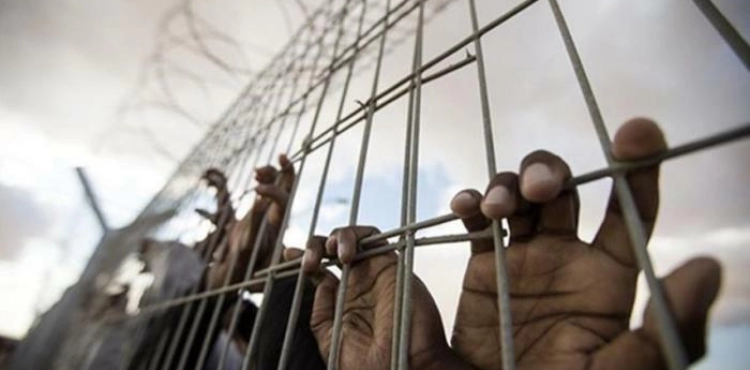292 human rights and civil organizations and networks in the Palestinian territories and the Arab world called on human rights and civil institutions to release the international community, led by the United Nations, the International Committee of the Red Cross and the Working Group on Arbitrary Detention, to pressure the Palestinian and apartheid to release about the Palestinian prisoners and occupation in the prisons of the Palestinians, and to end the file of administrative detention and stop its use against the Palestinians.
These organizations said in their, "Israel is violating one of the most important fair trial guarantees, in light of the concealment of information about the detainee and his lawyer, and the statement of extending his administrative detention indefinitely without the detainee knowing his accusation, and that their continued detention in this manner is a grave violation of international humanitarian law.”
The signatory organizations said that approximately 780 administrative detention orders without until two female prisoners and children, are being held in charge, bearing in mind that the number of administrative detention orders issued only since the beginning of 2022 now has reached approximately 1,350 orders, which requires stopping this systematic policy based on the law The abolished colonial emergency, and supposes the widest international campaign of solidarity with the Palestinian prisoners in general, and the administrative prisoners in particular, especially since there have been 30 hunger strikers since 9/25/2022 , in protest against the policy of administrative detention and in defense of the 780 administrative detention.
In their statement, human rights and civil institutions and networks also condemned Israel´s continued detention of about 4,650 distributed among 23 prisons and detainees, including 32 women and girls, about 180 minors under the age of eighteen, and 780 administrative detainees, including two female prisoners and four children.
There are also 600 prisoners suffering from various diseases, 22 of whom suffer from cancer, in addition to 549 prisoners who have been sentenced to life imprisonment, once or several times.
This is in addition to the policy of medical negligence pursued by the occupying power against Palestinian female prisoners and detainees, the policy of torture and solitary confinement in cells lacking the minimum conditions for human life, depriving the families of prisoners of their visits, and the systematic abuse and torture that prisoners and female prisoners are subjected to.
Human rights and institutions and networks stressed that the continued detention of Palestinian prisoners constitutes a grave violation of international humanitarian law, especially the Third and Fourth Geneva Conventions on the treatment of prisoners of war and detainees, and is also a war crime according to Article 85, Paragraph 5 of Protocol I to the Geneva Conventions, and in accordance with Article 8 of the Geneva Conventions. The Rome Statute of the International Criminal Court, and that the arbitrary detention of Palestinian prisoners and deportation, physical and psychological torture, and cruel, inhuman and degrading treatment and punishment, flagrantly violates international human rights law, especially the Convention against Torture (1984- 1987), as well as the standards adopted by the Working Group on arbitrary detention.
Human rights and organizations stressed the need to call on Arab, regional and international official and human rights institutions to work on the internationalization of the issue of prisoners and administrative detention, and to intensify the International Committee of the Red Cross´s visits to Palestinian prisoners and detainees , to expose practices that violate their rights, to publish reports for information, and to work to release them, including: sick prisoners children, women, prisoners and administrative detainees immediately.
It also stressed the opening of the prisons of the occupying power and the apartheid state to medical committees and international human rights committees, including the Working Group on Arbitrary Detention, calling on the contracting states to the Geneva Conventions to oblige the occupying and apartheid state, under the first common article, to respect its obligations under the Third and Fourth Geneva Conventions to protect prisoners and civilians.
The Commission of Inquiry on the Occupied Territories called for a study of the situation of male and female prisoners in the prisons of the occupier, and its discussion with the High Commissioner for Human Rights in Geneva, for the UN special rapporteurs to exercise their responsibilities in preparing urgent reports and highlighting violations of the rights of Palestinian prisoners to health and care, and exposing the practices of the occupying power and separation It also called on the United Nations and the Human Rights Council to hold an extraordinary session to discuss the conditions of Palestinian prisoners and detainees in Israeli prisons.
292 human rights and civil organizations and networks demand the release of prisoners in occupation prisons












